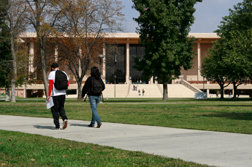CSU Faculty Vote to Strike under California Labor Law

In a news release issued May 2, the California Faculty Association (CFA) noted their members have been in negotiations with CSU for the past two years, without success. The talks were at an impasse, and while small delegations representing both sides in the California labor employment law dispute met last week in an attempt to find some small patches of common ground, members of the CFA voted in April to authorize rolling strikes.
Were strikes to force a delay in the start of classes at all 23 campuses of CSU this September, some 400,000 students would be affected. It is not known if such a disruption in the school year would result in a California labor lawsuit on the part of disgruntled students or their parents.
"We have said all along that we do not want to strike, but we will if that is what is necessary," said CFA president Lillian Taiz, a history professor at Cal State Los Angeles, in comments contained in the release.
Under California labor employment law, there are various steps governing the process. Were the delegations to be unsuccessful in finding any common ground, the next step would be to bring in a neutral third party??"referred to by some as a mediator. Here, the issues would be reviewed with the third party making recommendations to both sides for settling the dispute.
A rejection of third-party recommendations by both sides would trigger the expiry of the current contract. According to the release, CSU would have the power under California state labor laws to impose its contractual demands and concessions on the members of the bargaining unit??"and the CFA would have the right to strike.
While such actions would be legal under California employee labor law, a full strike by CFA faculty would have a severe impact on students either beginning their university studies or continuing in an existing program. Depending on the duration of a possible work stoppage, the delay in the commencement of classes could threaten the academic year and impact timelines and opportunities for starting a career.
With the CFA bargaining unit authorizing rolling strikes, the entire CSU system would not be affected all at once. However, in the event of a contract expiry and having the right to strike under California state labor laws, there would be nothing stopping the CFA from amending that position in an effort to put increased pressure on the CSU.
Were that to happen, would a California labor lawsuit (or series of lawsuits) by disgruntled students or parents be far behind? Stay tuned.











No Comments